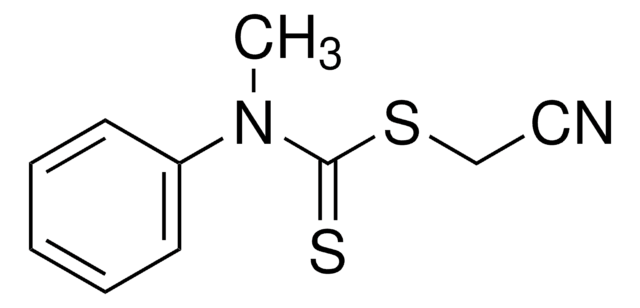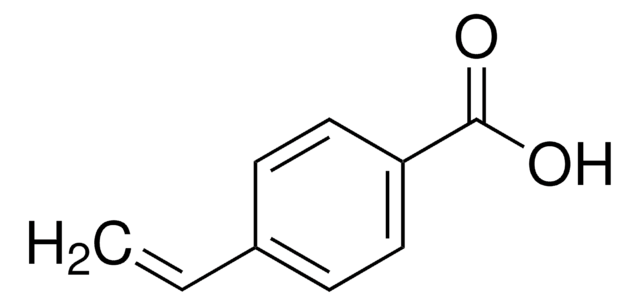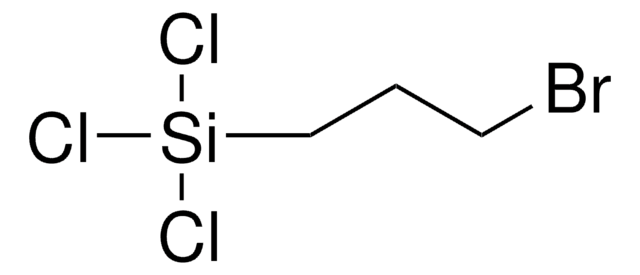735639
Methyl 2-[methyl(4-pyridinyl)carbamothioylthio]propionate
97%
동의어(들):
N-(4-Pyridinyl)-N-methyldithiocarbamate methyl 2-propionate, Methyl 2-[methyl(pyridin-4-yl)carbamothioylthio]propanoate, Methyl 2-propionate methyl(4-pyridinyl)carbamodithioate
About This Item
추천 제품
분석
97%
양식
solid
mp
76-81 °C
저장 온도
2-8°C
SMILES string
COC(=O)C(C)SC(=S)N(C)c1ccncc1
InChI
1S/C11H14N2O2S2/c1-8(10(14)15-3)17-11(16)13(2)9-4-6-12-7-5-9/h4-8H,1-3H3
InChI key
LOGGAKBRSDSFSB-UHFFFAOYSA-N
애플리케이션
신호어
Warning
유해 및 위험 성명서
Hazard Classifications
Eye Irrit. 2 - Skin Irrit. 2 - Skin Sens. 1 - STOT SE 3
표적 기관
Respiratory system
Storage Class Code
11 - Combustible Solids
WGK
WGK 3
Flash Point (°F)
Not applicable
Flash Point (°C)
Not applicable
가장 최신 버전 중 하나를 선택하세요:
이미 열람한 고객
문서
Universal (Switchable) RAFT agents allow for the polymerization of both less activated and more activated monomers and are ideal for the synthesis of well-defined block copolymers.
RAFT polymerization uses commercial agents to control polymer properties without cytotoxic heavy metals like ATRP.
The modification of biomacromolecules, such as peptides and proteins, through the attachment of synthetic polymers has led to a new family of highly advanced biomaterials with enhanced properties.
Micro review of reversible addition/fragmentation chain transfer (RAFT) polymerization.
프로토콜
We presents an article featuring procedures that describe polymerization of methyl methacrylate and vinyl acetate homopolymers and a block copolymer as performed by researchers at CSIRO.
We present an article about RAFT, or Reversible Addition/Fragmentation Chain Transfer, which is a form of living radical polymerization.
Polymerization via ATRP procedures demonstrated by Prof. Dave Haddleton's research group at the University of Warwick.
활성 필터
자사의 과학자팀은 생명 과학, 재료 과학, 화학 합성, 크로마토그래피, 분석 및 기타 많은 영역을 포함한 모든 과학 분야에 경험이 있습니다..
고객지원팀으로 연락바랍니다.


![4-Cyano-4-[(dodecylsulfanylthiocarbonyl)sulfanyl]pentanoic acid 97% (HPLC)](/deepweb/assets/sigmaaldrich/product/structures/204/925/30ae6ca0-5b0b-4963-a061-7e5e3d1a85af/640/30ae6ca0-5b0b-4963-a061-7e5e3d1a85af.png)






